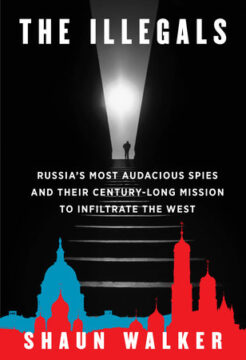Shaun Walker at Lit Hub:
 The fundamental role of intelligence agencies is to obtain information about other countries not available through open channels. Much of this work is done in the shadows, and most intelligence agencies use undercover operatives. The simplest way to do so is to disguise spies as diplomats. If caught, they can simply return home, claiming diplomatic immunity. But this also makes it easy for a host nation’s counterintelligence services to monitor the operatives. Diplomats are known entities and are tracked carefully. Some intelligence agencies will therefore use a riskier but harder-to-detect option. A spy is dispatched abroad posing as a business executive or other innocent-seeming professional, perhaps carving out a long and successful career in the cover role while all the time secretly developing useful sources and sending back intelligence. The CIA calls this “non-official cover.”
The fundamental role of intelligence agencies is to obtain information about other countries not available through open channels. Much of this work is done in the shadows, and most intelligence agencies use undercover operatives. The simplest way to do so is to disguise spies as diplomats. If caught, they can simply return home, claiming diplomatic immunity. But this also makes it easy for a host nation’s counterintelligence services to monitor the operatives. Diplomats are known entities and are tracked carefully. Some intelligence agencies will therefore use a riskier but harder-to-detect option. A spy is dispatched abroad posing as a business executive or other innocent-seeming professional, perhaps carving out a long and successful career in the cover role while all the time secretly developing useful sources and sending back intelligence. The CIA calls this “non-official cover.”
Moscow’s illegals program took this concept several steps further. The KGB put ordinary Soviet citizens like Elena and Andrei through years of training to transform them into Westerners. They would then spend decades living abroad, blending into their host societies.
more here.
Enjoying the content on 3QD? Help keep us going by donating now.
